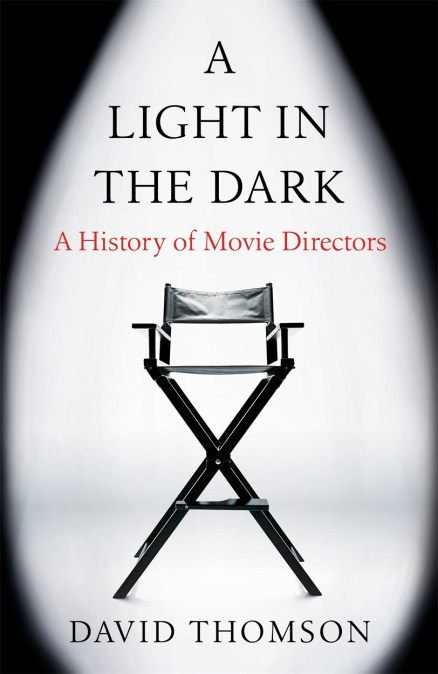In little more than a century of cinema – Birth of a Nation was one hundred years old in 2015 – our sense of what a film director is, or should be, has shifted in fascinating ways. A director was once a functionary; then an important but not decisive part of an industrial process; then accepted as the person who was and should be in charge, because he was an artist and a hero. But the world has changed. In a nutshell, the change takes the form of a question: Who directed The Sopranos or Homeland? Hardly anyone knows, because we don’t tend to read TV credits and the director has returned to a more subservient and anonymous role. Directors now try to be efficient, the deliverers of profitable films, and are often involved as producers, like Steven Spielberg.
David Thomson’s brilliant A Light in the Dark personalises each chapter through an individual: Jean Renoir, Howard Hawks, Jean-Luc Godard, Alfred Hitchcock, Luis Bunuel, Orson Welles, Fritz Lang, Jane Campion, Stephen Frears and Quentin Tarantino. Through these characters (and other directors not mentioned here), David Thomson relates an imaginative new history of a medium that has changed the world.
David Thomson’s brilliant A Light in the Dark personalises each chapter through an individual: Jean Renoir, Howard Hawks, Jean-Luc Godard, Alfred Hitchcock, Luis Bunuel, Orson Welles, Fritz Lang, Jane Campion, Stephen Frears and Quentin Tarantino. Through these characters (and other directors not mentioned here), David Thomson relates an imaginative new history of a medium that has changed the world.
Newsletter Signup
By clicking ‘Sign Up,’ I acknowledge that I have read and agree to Hachette Book Group’s Privacy Policy and Terms of Use
Reviews
With this dynamic book, Thomson is big enough to follow the cry of "action!" wherever it leads
David Thomson has spent his life thinking hard and deep about cinema, and so he's uniquely placed to write this lovely, brutal book about the glory of being a film-maker and vainglory of being an auteur
Forensic and stimulating . . . There is much new thinking, taking into account changes in both film criticism and society
Compulsive reading: thoughtful and thought-provoking in equal measure. David Thomson's knowledge is comprehensive and his response to all films humane and entirely uncorrupted by the conventional hagiography of so much writing about film. He's engagingly unafraid of challenging received opinion
It took over my life for two days. It is a summary of cinema and a requiem. Love and sadness. A prodigious masterwork.
Fizzing . . . It has that sense of live debate that's so inimical to social media's village green . . . Invaluable





